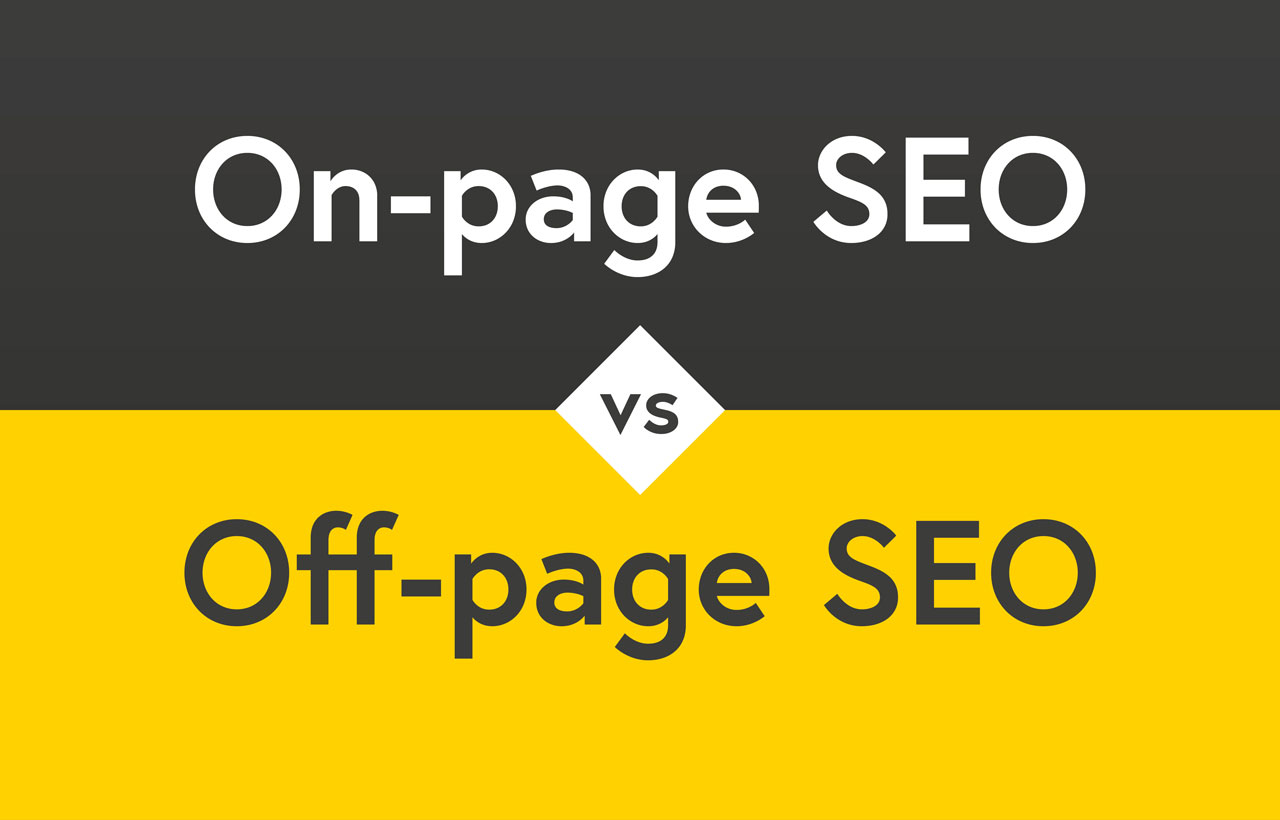On-Page vs. Off-Page SEO: Unveiling the Pillars of Digital Visibility
In the vast landscape of digital marketing, Search Engine Optimisation (SEO) stands as an indispensable tool for enhancing online visibility and driving organic traffic to websites. Within the realm of SEO, two distinct but interdependent strategies reign supreme: On-Page SEO and Off-Page SEO. These strategies, when executed effectively, can significantly elevate a website’s ranking on search engine results pages (SERPs). Let’s delve into the nuances of each, exploring their unique characteristics and importance in the digital marketing ecosystem.
On-Page SEO: Crafting the Foundation
On-Page SEO revolves around optimising various elements within a website to enhance its visibility and relevance to search engines. It primarily involves structuring web pages and content in a manner that aligns with search engine algorithms and user intent. Here are some key components of On-Page SEO:
- Keyword Optimisation:
Integrating relevant keywords strategically throughout website content, including titles, headings, meta descriptions, and body text, to signal to search engines the relevance of the page to specific queries. - High-Quality Content:
Producing informative, engaging, and valuable content that caters to the needs and interests of the target audience. Content quality plays a pivotal role in attracting organic traffic and encouraging user engagement. - Meta Tags and Descriptions:
Crafting compelling meta titles and descriptions that accurately represent the content of each web page while enticing users to click through to the site from search results. - URL Structure:
Ensuring that website URLs are concise, descriptive, and user-friendly, incorporating relevant keywords where appropriate to enhance search engine visibility. - Internal Linking:
Establishing a logical network of internal links between related pages within the website to facilitate navigation, distribute link equity, and improve crawlability for search engine bots. - Page Speed and Mobile Friendliness:
Optimising website performance to deliver fast-loading pages and ensuring compatibility with mobile devices, as page speed and mobile responsiveness are significant ranking factors in search algorithms.
By meticulously fine-tuning these on-page elements, website owners can exert greater control over their digital footprint, laying a solid foundation for improved search engine rankings and user experience.
Off-Page SEO: Building Authority and Trust
While On-Page SEO focuses on optimising the website itself, Off-Page SEO encompasses activities conducted outside the website to enhance its authority, relevance, and credibility across the web. The primary objective of Off-Page SEO is to acquire high-quality backlinks from reputable sources, thereby signalling to search engines the website’s trustworthiness and authority within its niche. Here are some key strategies associated with Off-Page SEO:
- Link Building:
Engaging in strategic outreach and networking to acquire backlinks from authoritative websites, directories, and online communities. Quality backlinks serve as a vote of confidence from other sites, boosting the website’s credibility and improving its search engine rankings. - Social Media Engagement:
Leveraging social media platforms to amplify the reach of website content, foster community engagement, and cultivate brand awareness. Social signals, such as likes, shares, and comments, can indirectly impact search rankings by enhancing content visibility and generating referral traffic. - Online Reputation Management:
Monitoring and managing the online reputation of the website through proactive brand advocacy, review management, and crisis response strategies. A positive online reputation contributes to trustworthiness and can positively influence search engine rankings. - Guest Blogging and Content Marketing:
Collaborating with industry influencers and publishing guest posts on relevant websites to expand the website’s reach, build relationships, and earn authoritative backlinks. Content marketing initiatives can also attract natural backlinks and enhance brand visibility across the web. - Local SEO and Business Citations:
Optimising the website for local search queries by claiming and optimising business listings on prominent online directories, review platforms, and mapping services. Consistent NAP (Name, Address, Phone Number) information across these platforms reinforces the website’s credibility and improves its visibility in local search results.
Conclusion: Achieving Holistic SEO Success
In the dynamic realm of SEO, On-Page and Off-Page strategies function as complementary pillars, each playing a crucial role in enhancing a website’s visibility, relevance, and authority in the digital landscape. While On-Page SEO lays the groundwork by optimising internal elements and content, Off-Page SEO extends the website’s influence beyond its domain through link acquisition, social engagement, and reputation management.
To achieve holistic SEO success, website owners and digital marketers must strike a balance between both strategies, continuously refining their approach to adapt to evolving search engine algorithms and user behaviours. By embracing the synergistic relationship between On-Page and Off-Page SEO, businesses can ascend the ranks of search engine results, attract qualified traffic, and ultimately, achieve their digital marketing objectives in an ever-competitive online arena.
Got a project in mind?
Kind people who improve the world hire us to take care of their design because it’s time to level up! If you have a project, want to create a buzz for your business and are serious about having professionally designed brand identity, learning how to grow your brand, or require a website and marketing literature to communicate with your audience, get in touch!

